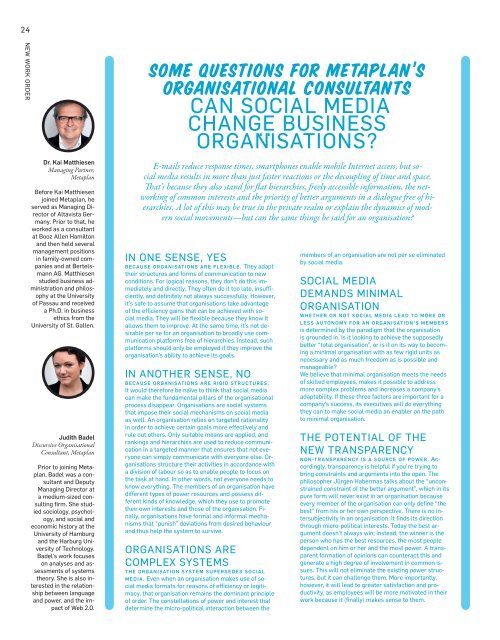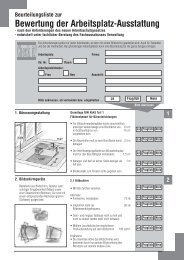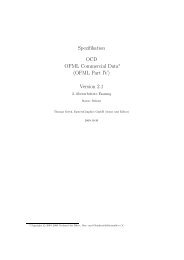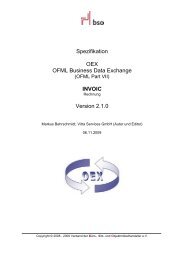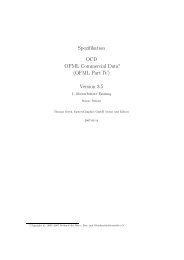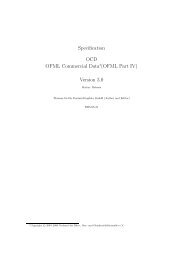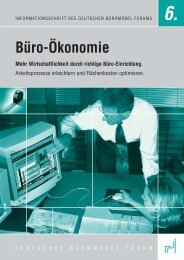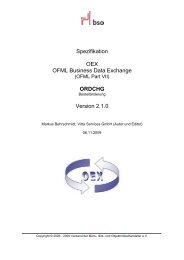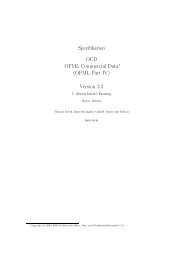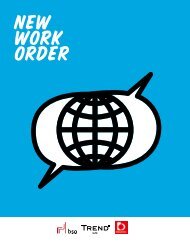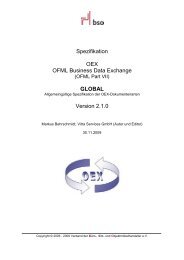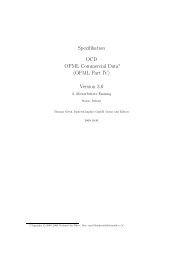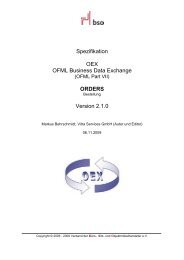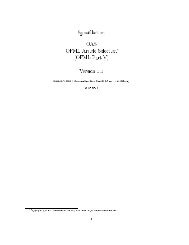New Work Order - Orgatec
New Work Order - Orgatec
New Work Order - Orgatec
- No tags were found...
Create successful ePaper yourself
Turn your PDF publications into a flip-book with our unique Google optimized e-Paper software.
24<strong>New</strong> <strong>Work</strong> orderDr. Kai MatthiesenManaging Partner,MetaplanBefore Kai Matthiesenjoined Metaplan, heserved as Managing Directorof Altavista Germany.Prior to that, heworked as a consultantat Booz Allen Hamiltonand then held severalmanagement positionsin family-owned companiesand at BertelsmannAG. Matthiesenstudied business administrationand philosophyat the Universityof Passau and receiveda Ph.D. in businessethics from theUniversity of St. Gallen.Judith BadelDiscursive OrganisationalConsultant, MetaplanPrior to joining Metaplan,Badel was a consultantand DeputyManaging Director ata medium-sized consultingfirm. She studiedsociology, psychology,and social andeconomic history at theUniversity of Hamburgand the Harburg Universityof Technology.Badel’s work focuseson analyses and assessmentsof systemstheory. She is also interestedin the relationshipbetween languageand power, and the impactof Web 2.0.Some questions for Metaplan’sorganisational consultantsCan social mediachange businessorganisations?E-mails reduce response times, smartphones enable mobile Internet access, but socialmedia results in more than just faster reactions or the decoupling of time and space.That’s because they also stand for flat hierarchies, freely accessible information, the networkingof common interests and the priority of better arguments in a dialogue free of hierarchies.A lot of this may be true in the private realm or explain the dynamics of modernsocial movements—but can the same things be said for an organisation?In one sense, yesBecause organisations are flexible. They adapttheir structures and forms of communication to newconditions. For logical reasons, they don’t do this immediatelyand directly. They often do it too late, insufficiently,and definitely not always successfully. However,it’s safe to assume that organisations take advantageof the efficiency gains that can be achieved with socialmedia. They will be flexible because they know itallows them to improve. At the same time, it’s not desirableper se for an organisation to broadly use communicationplatforms free of hierarchies. Instead, suchplatforms should only be employed if they improve theorganisation’s ability to achieve its goals.In another sense, noBecause organisations are rigid structures.It would therefore be naïve to think that social mediacan make the fundamental pillars of the organisationalprocess disappear. Organisations are social systemsthat impose their social mechanisms on social mediaas well. An organisation relies on targeted rationalityin order to achieve certain goals more effectively andrule out others. Only suitable means are applied, andrankings and hierarchies are used to reduce communicationin a targeted manner that ensures that not everyonecan simply communicate with everyone else. Organisationsstructure their activities in accordance witha division of labour so as to enable people to focus onthe task at hand. In other words, not everyone needs toknow everything. The members of an organisation havedifferent types of power resources and possess differentkinds of knowledge, which they use to promotetheir own interests and those of the organisation. Finally,organisations have formal and informal mechanismsthat “punish” deviations from desired behaviourand thus help the system to survive.Organisations arecomplex systemsThe organisation system supersedes socialmedia. Even when an organisation makes use of socialmedia formats for reasons of efficiency or legitimacy,that organisation remains the dominant principleof order. The constellations of power and interest thatdetermine the micro-political interaction between themembers of an organisation are not per se eliminatedby social media.Social mediademands minimalorganisationWhether or not social media lead to more orless autonomy for an organisation’s membersis determined by the paradigm that the organisationis grounded in. Is it looking to achieve the supposedlybetter “total organisation”, or is it on its way to becominga minimal organisation with as few rigid units asnecessary and as much freedom as is possible andmanageable?We believe that minimal organisation meets the needsof skilled employees, makes it possible to addressmore complex problems and increases a company’sadaptability. If these three factors are important for acompany’s success, its executives will do everythingthey can to make social media an enabler on the pathto minimal organisation.The potential of thenew transparencyNon-transparency is a source of power. Accordingly,transparency is helpful if you’re trying tobring constraints and arguments into the open. Thephilosopher Jürgen Habermas talks about the “unconstrainedconstraint of the better argument”, which in itspure form will never exist in an organisation becauseevery member of the organisation can only define “thebest” from his or her own perspective. There is no intersubjectivityin an organisation. It finds its directionthrough micro-political interests. Today the best argumentdoesn’t always win; instead, the winner is theperson who has the best resources, the most peopledependent on him or her and the most power. A transparentformation of opinions can counteract this andgenerate a high degree of involvement in common issues.This will not eliminate the existing power structures,but it can challenge them. More importantly,however, it will lead to greater satisfaction and productivity,as employees will be more motivated in theirwork because it (finally) makes sense to them.


